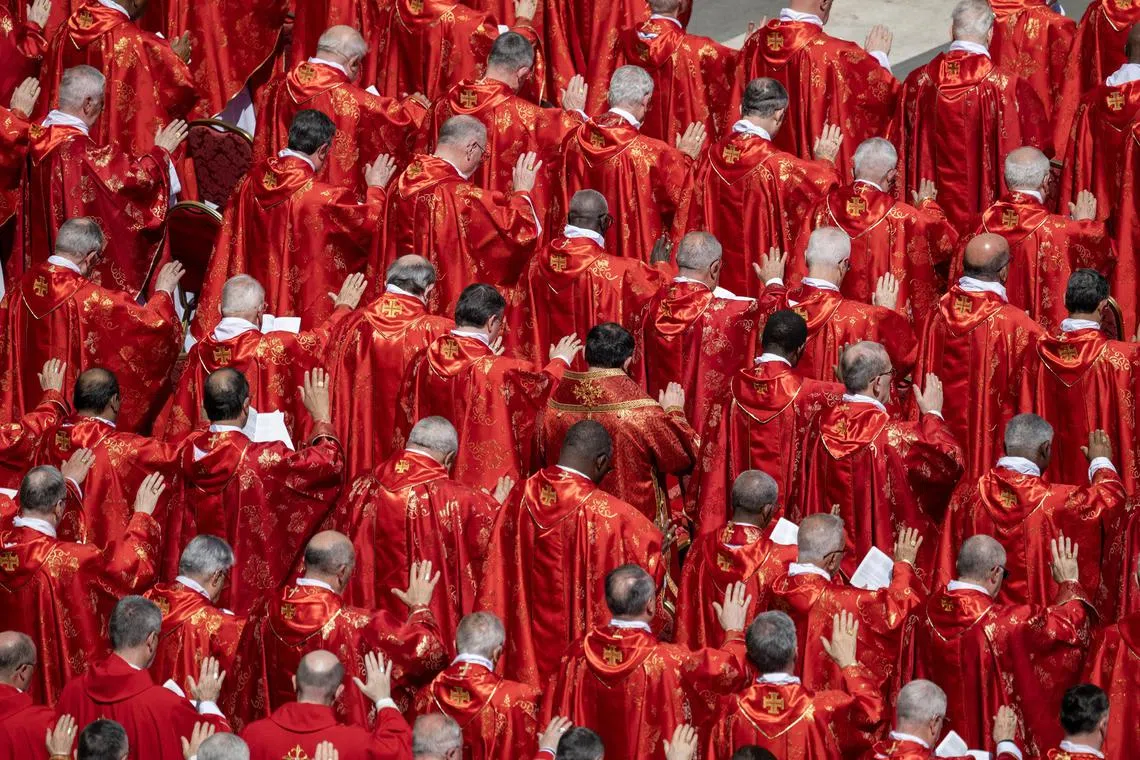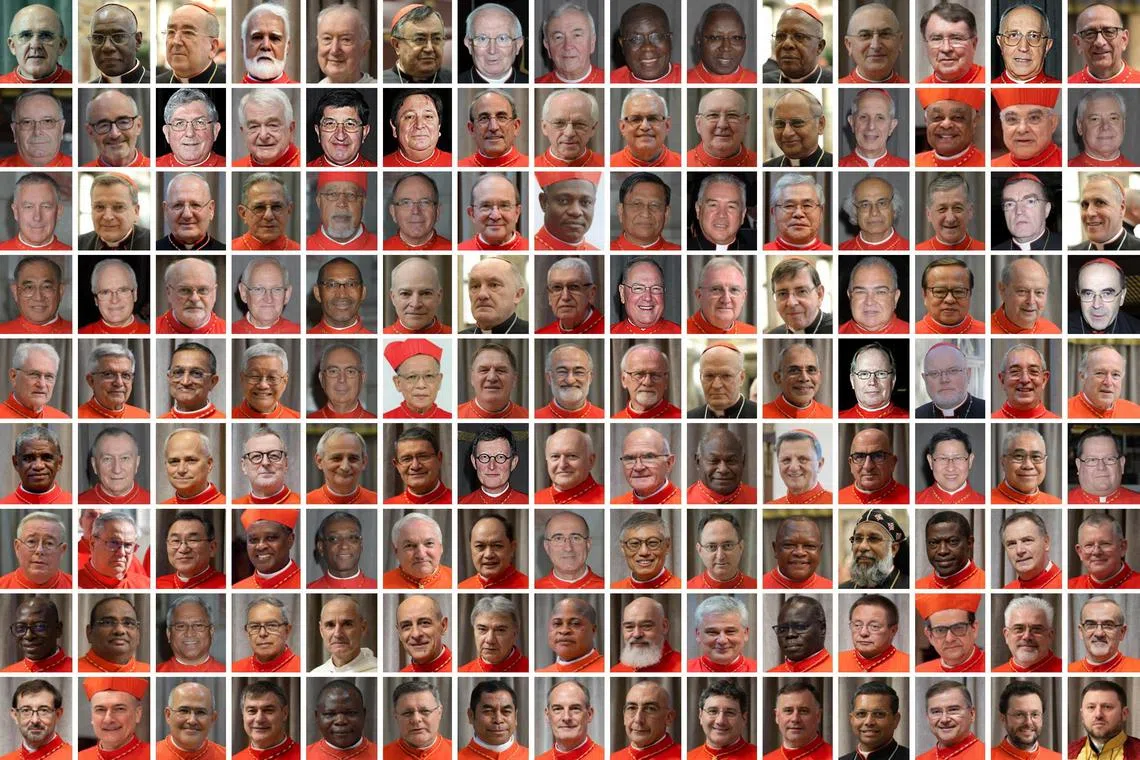Conclave to elect Pope Francis’ successor starts on May 7
Sign up now: Get ST's newsletters delivered to your inbox

The cardinals set to pick the new pope hail from all corners of the globe.
PHOTO: JAMES HILL/NYTIMES
VATICAN CITY – Catholic cardinals will meet on May 7 to start voting for a new pope, the Vatican announced on April 28, a week after the death of Pope Francis
The so-called “princes” of the Church under the age of 80 will meet in the Sistine Chapel to choose a new religious leader of the world’s 1.4 billion Catholics.
The date was decided during a meeting of cardinals early on April 28, two days after the funeral of Pope Francis, who died on April 21, aged 88.
The Church’s 252 cardinals were called back to Rome following the death of Pope Francis on April 21, although only 135 are aged under 80 and, therefore, eligible to vote for a new pope.
They hail from all corners of the globe, and many of them do not know one another.
But they already had four meetings last week, so-called general congregations, where they began to get better acquainted.
Cardinal Gualtiero Bassetti, 83, a former head of the Italian bishops’ conference, said there was a “beautiful, fraternal atmosphere”.
“Of course, there may be some difficulties because the voters have never been so numerous and not everyone knows each other,” he told Italy’s Corriere della Sera newspaper.
So far, there are few clues as to who they might choose.
“I believe that if Francis has been the pope of surprises, this conclave will be too, as it is not at all predictable,” Spanish Cardinal Jose Cobo told El Pais in an interview published on April 27.
Pope Francis was laid to rest on April 26
Vast crowds also gathered on April 27 to view his marble tomb in the Santa Maria Maggiore Basilica in Rome, after the “pope of the poor” opted to be buried outside the Vatican’s walls.
With conflicts and diplomatic crises raging around the world, Italian Cardinal Pietro Parolin, who under Pope Francis was secretary of state and No. 2, is for many the favourite to succeed him.
British bookmaker William Hill put him slightly ahead
Next in its odds came Cardinal Pierbattista Pizzaballa, the Latin patriarch of Jerusalem; Guinea’s Cardinal Robert Sarah; and Cardinal Matteo Zuppi, Archbishop of Bologna.

A composite photo showing the 135 cardinals eligible to vote for a new pope.
PHOTO: EPA-EFE
‘Right pope’
Mr Ricardo Cruz, 44, a data and artificial intelligence specialist who came to see Pope Francis’ tomb, said that as a Filipino, he hoped the next pope would be from Asia, but as a Catholic, he just hoped the cardinals would pick the “right pope”.
While Pope Francis’ efforts to create a more compassionate Church earned him widespread affection and respect, some of his reforms angered the Church’s conservative wing, particularly in the US and Africa.
Professor Roberto Regoli, who teaches church history and culture at the Pontifical Gregorian University in Rome, said the cardinals would be looking “to find someone who knows how to forge greater unity”.
“We are in a period in which Catholicism is experiencing various polarisations, so I don’t imagine it will be a very, very quick conclave,” he said.
But Cardinal Bassetti, who is too old to participate, said he thought it “will not be long”.
Some 80 per cent of the cardinal electors were appointed by Pope Francis, though that is no guarantee they will pick a successor in his likeness.
Most are relatively young, and for many, it is their first conclave.
‘We need a courageous leader’
The vote, held in the Sistine Chapel with its 16th-century ceiling frescoed by Michelangelo, is highly secretive and follows strict rules and ceremonial procedures.
The process could take several days or potentially longer.
There are four votes per day – two in the morning and two in the afternoon – until one candidate secures a two-thirds majority.
Fewer than half of those eligible to vote are European.
“The future pope must have a universal heart, love all the continents. We must not look at colour, at origin, but at what is proposed,” Cardinal Dieudonne Nzapalainga from the Central African Republic told the Italian newspaper Il Messaggero.
“We need a courageous leader, a bold one, capable of speaking forcefully, of holding the helm of the Church steady even in storms... offering stability in an era of great uncertainty.”
Ms Patrizia Spotti, a 68-year-old Italian visiting Rome for the 2026 Jubilee holy year, said she hopes the new pontiff “will be a pope like Francis”.
It was a difficult time for Catholicism, she said.
“Churches are empty, and the Church itself has made mistakes – all the scandals with the children,” she said, referring to the widespread revelations of clerical sex abuse. AFP


